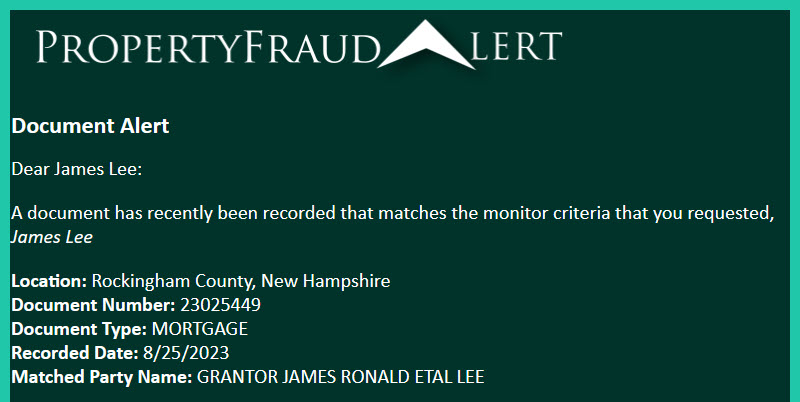What is property fraud and how can I avoid it?
Property fraud is when someone uses a false identity to change the ownership of a property from your name to their name. Once they have the property in their usually false name, they can use the equity in your property as collateral and get as many loans as possible using your property as security. This goes on behind the scenes and victims usually have no idea it’s even happening until they start getting past-due notices and calls from creditors looking for repayment of their loan.
What about those “title protection” services?
[youtube https://www.youtube.com/watch?v=iijpYCeKSZo?si=acExfBVXzF6Bi74J&w=560&h=315]You may have seen or heard advertisements from companies advertising “Title Lock” protection or similar wording. They often pay celebrities big bucks to advertise their products while using scare tactics to frighten you into buying their ‘protection’. The least expensive ones start at $19.95 a month and go way higher. Most registries in the US have a free service that does the same thing.
How do thieves ‘steal’ your property?
Today’s ever-sophisticated technology makes it easier to create a false identity, forge your signature on a quit claim deed, and record that deed at your local registry of deeds. Once they have that deed recorded they can then try to either obtain one or more mortgages on your home or, if the home is vacant, break in and try to actually sell it to unsuspecting buyers. These thieves often target vacation homes, estates, or otherwise unoccupied homes, especially homes with no mortgage and owners with good credit history.
Is it as easy as they make it seem?
However, in the real world, the likelihood of anyone actually “stealing” your home by committing title fraud is pretty remote.
- First of all, a forged deed is not valid and conveys nothing, especially not your property.
- Second, when you record a deed the signatures must be notarized which means the person who signed the deed must appear in person before a notary public, a person certified by the state to validate documents, present proof of their identity, and then sign the document in their presence. Today in New Hampshire, it is possible to have documents notarized remotely but the notary public still must physically be in New Hampshire and satisfy themselves as to the identity of the person who signed the document.
- Third, it is next to impossible for the thief to mortgage or sell the property to a knowledgeable lender or buyer. Lenders, title companies, and real estate firms have so many safeguards in place that there is almost no chance a fraudulent transfer won’t be discovered. The required credit reports, employment and income verifications, back tax returns, appraisals, and title insurance are bound to alert you and the lender that something is wrong. But, again in the real world, stranger things have happened, and any steps you can take to protect yourself are usually worth taking.
Here’s a free way to protect yourself and your property
If you live in the state of New Hampshire, and many other states as well, your local registrar of deeds has made a free service available to you that will automatically notify you if anyone tries to record any sort of document with your name on it. Click here for the “Rockingham County Registry of Deeds” and find the link on their website. I know this service works because my wife and I both signed up for it several months ago and just last week I got a property fraud alert from them. 
It seems someone with a similar name to mine had recorded a mortgage document but his middle name was different from mine. It did give me pause for a few seconds before I read the whole thing and saw the different middle names. Unfortunately, you can only add your first and last names in addition to trusts. I would highly advise anyone who owns property in New Hampshire or Maine to sign up for this free service. Free is hard to beat and it could save you lots of time expense, and aggravation getting a property fraud squared away should the worst happen and a crook actually try to claim your property.

Questions? We’re happy to help. You can contact us here or give us a call at 603.436.1221, our direct number, which works for voice or text.
